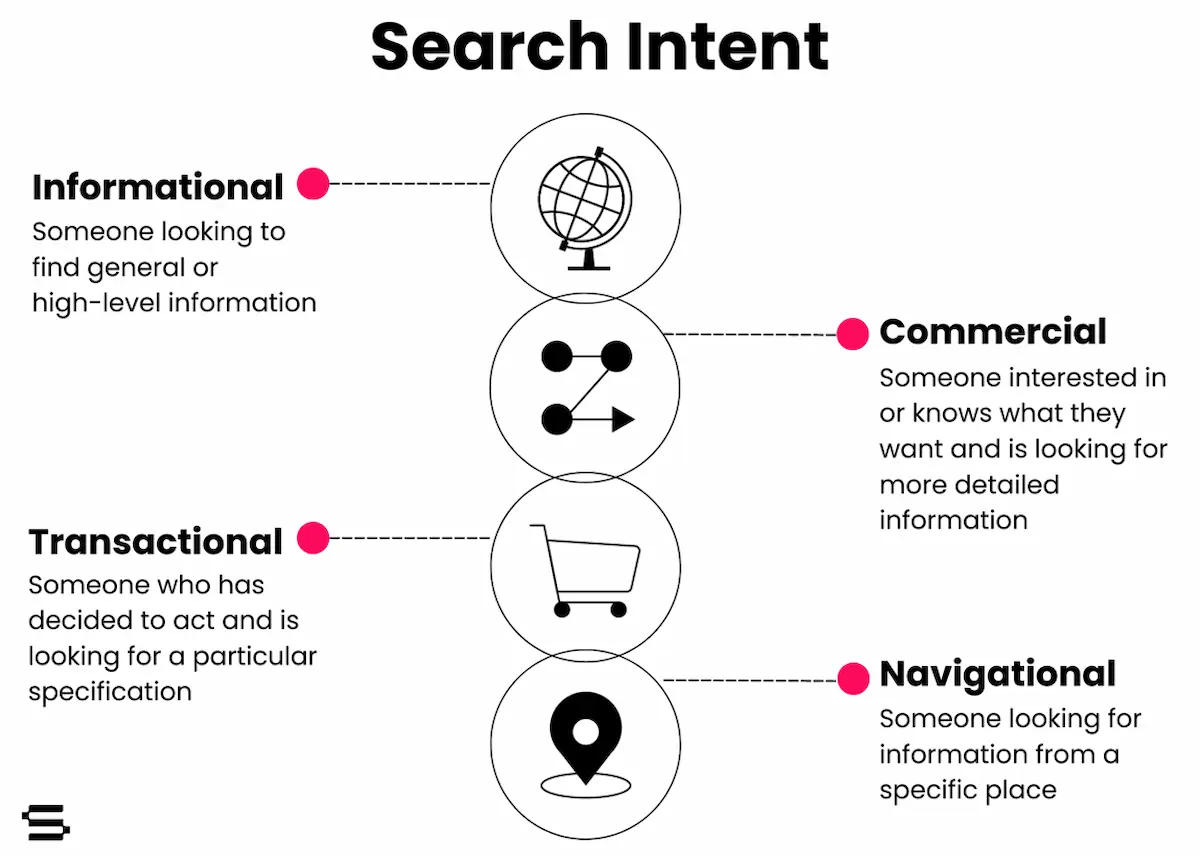I know a lot of this just won't apply for all of you, it isn't going to. I would imagine that many companies have great reasons to have SEO in house. I just want to provide a different point of view with the recent spate of certifications, columns, sessions, and buzz about in house SEO. While it is easy to say, “Yeah, well of course an SEO company is going say outsource SEO” that is not the case here. I hate seeing people make mistakes in SEO (whether in house or not), I have always been a purist, so before writing this off because the source is an SEO company just read a few ideas below, even if one or two questions are worth pondering I will have succeeded in just getting you to think and prepare for in house SEO. 1 â Do I have access to TOP SEO talent (not just SEO talent)?
There is a vast chasm between being a GOOD SEO and being an SEO. For those of you who love the beach, you know that beachfront property is often the most expensive. It is often the most limited as well.
Economics 101 folksâ¦we're talking about scarcity!! How long does it take to fill an SEO job? The good folks can sometimes be hard to find and take up to 12 months to get.
Look at the web sites ranking well for the terms you would like to target. What do you think the likelihood is that the SEO you hire will be one of the best, and can unseat your top competitors given how difficult it is to find GOOD SEO talent? Use the SEOMOZ keyword difficulty tool or the cool SEO tool to figure out how uphill a battle you've got. The more uphill the more likely you need top talent.
If you are in a serious niche, it is easier to go fully in house because you won't need TOP talent and can find someone more with a desire to learn. If your space is remotely competitive you may need a TOP SEO to work on your project. Can you get one? Again for companies in niches, you could probably get a good SEO company to help you out for 5k-15k, which is much less costly than an employee.
Tip: At times if you want top talent you may have to look for telecommuters. Don't always look JUST in your backyard. If you are having a hard time finding talent, and new are new to evaluating SEO talent, you might want to hire an SEO consultant to help you on the technical side of hiring this person.
2 â If my in house or outsource solution doesn't perform, how quickly can I drop them and move on?
Selecting SEO's, whether in house or agency, is always a tough decision. Very often you are stuck with an agency or individual for 5-6 months before you realize whether or not they are performing. But at least with an agency, at that point you can cut them loose easily for lack of performance with minimal liability.
With an in house SEO, they are part of your team, you go to lunch with them, see them at Christmas parties, and see their kids pictures on their desks. If you realize it is not working at 5-6 months:
- How much longer are you committed to “building a case” against them before they can be let go?
- You have to get HR involved and start that whole waste of time!
- What is the opportunity cost of the time spent training, searching, and waiting for results that never came?
- Did your competitors stop getting more aggressive and more fierce? I doubt it.
- More than likely they moved forward and fortified positions while you languished, and now you are stuck until enough happens to build a case. Is that 3 months, 6 months, 12?
Then there's the other sideâ¦you HIRED an SEO team to help you rank well and drive traffic. If they don't do that well, does your need to rank to drive traffic well go away? Probably not.
You still need to get those rankings, so do you rebuild the team again? Outsource? Either way you are more educated on the process, learned a lot, but are basically back to square one, that's opportunity cost! Tip: Call a pig a pig, whether in house or outsourced. DUMP the poor performers.
3 â Do I have enough sites/products to give my SEO a good sandbox to learn about larger trends in SEO? Where will they “practice”?
When I was in house, I had about 10 sites I was optimizing, so this problem didn't apply much to me. If you manage multiple sites, this may not apply to you. Move on to #4.
One of the biggest issues with SEO is knowing when to hold em and when to fold em. The more sites you are working on, the more you can tell when an issue is just an anomaly and the search engines will come around and when the issue lies in YOUR strategy. The fewer sites you are concurrently working on the less current research you have to draw from to make your inferences resulting in longer wait times for results, traffic, sales and leads.
Real search agencies are working on multiple clients at a time, this means they are just exposed to more and have more current experience to pull from. If an agency experiences a dip in one clients ranking but their other 20-30 sites under management do not see the same dip they know it is client specific. If the drop occurs across many clients, the agency will see it as possibly an issue in their strategy.
Tip: Develop new test products to allow your SEO team to play and learn with minimal risk to the company's main domain(s).
4 - Do I REALLY need maintenance that requires someone here daily after the heavy lifting is done?
I was in house (almost 4 years ago) for a great fortune 500 insurance company. Today, I can still look at sites I optimized 4 years ago and see that they are still in the top 3 for their big terms. It is important to note that the industries weren't that competitive and they had great offline positioning.
I don't know how many times I need to say it, but if you are a company that doesn't launch new products and sites very regularly, OR if you are not in a VERY VERY competitive industry, you probably don't need an SEO team to maintain your rankings on a daily basis after the 6-12-18 months have passed.
If you can think of any other exceptions, please share them?
Let's think about itâ¦if I could somehow make a new coffee distributor highly relevant for the phrases for their business like “fair trade coffee” do you expect that the day after our contract ends that Google, MSN, and Yahoo suddenly look at them as LESS relevant?!! NO they won't. Now does that mean that you should not refresh efforts from time to time in some industries or develop linkbait to fortify rankings? No, I am not saying that either. I just don't think that you'll need someone there every day though.
What does this have to do with in house SEO? Everything.
1. If your in house SEO is good (There are many amazing in house SEO's) I would love to work with a ton of people from this list if I could. 2. AND you don't launch products all the time or you are NOT in the most competitive industry for online rankings your SEO team will likely get great rankings for you just as you hoped. Your rankings go up, traffic skyrockets, and then the conversions come, GREAT HIRE!!!
Ok, keeping in mind that I don't believe most (not all) sites need very regular maintenance after 12 or so months. You'll have a great employee who has done a great job, but just doesn't have new SEO projects. Again, what do you do in that scenario?
When I was in house I worked on about 10 different sites, but at some time most were ranking very well for niche insurance terms and the job morphed into analytics and other online marketing consulting efforts. I might have worked myself out of a 40 hour a week job had I not adapted to other channels like analytics.
Tip: Be prepared to give new responsibilities when your in house SEO starts maxing out results
5 â Am I OK with my in house team freelancing/working on affiliate sites while at work?
SEO's often do moonlight, and sometimes while AT WORK. If you don't mind that is fine, skip ahead. It is almost inevitable that certain members may start freelancing and doing side work as the challenge might be gone, or as they learn skills to help them earn side revenue. Your stability is great while they earn extra money working on their affiliate sites and other clients.
Again, if you don't mind, then that is fine, but if you do mindâ¦many in house folks who are good and run out of true challenges with their in house job love how they can work on their side projects and make money, while you provide stability, send them to training and conferences. I would say don't fight it if you have a GREAT in house person. Let them be honest with you and as long as the results are there...think about it, maybe they could go part time?
Tip: Have a freelance policy in place / create rules early so everyone knows what is acceptable, it will save you headaches later. Keep in mind that restricting such activities might limit you from getting top talent.
6 â Can my industry / keywords truly provide highly competitive opportunities for my in house team to get excited about going after day after day?
When I was in-house after I finished getting good solid rankings on the sites, I no longer had as many real challenging opportunities ahead of me.
Really good SEOs typically SALIVATE at the chance to go after the big terms and test their skills time and time again. However when in house, you might be limited to the number and complexity of opportunities to really "sharpen the saw". If your in house SEO is great and gets those top rankings and you are NOT constantly launching new opportunities they may grow bored and move on or stay around and do their side work.
7 â Will my in house team be trusted and allowed to do their job well? This was my biggest issue with being in houseâ¦sometimes people just didn't want to believe I actually knew what I was doing. Sometimes my friends who are in house SEOs (we're still friends right?) would get frustrated because some members preferred trusting consultants and random articles they read over their own in house teams. This can be very frustrating and wear on even the best SEO professionals. The company pays the employee and then they pay a consultant? Tip: Good SEO's are a bit different. What makes them good often is their ability to make changes and see the impact on rankings, traffic, sales and leads. Politics will especially suck the life out of these people. Shield them from in house politics!
8 â Can I get an SEO consultant + in-house team to get along? Who do I hold accountable?
This was recently a recommended strategy in the search marketing standard by Jessica Bowman. Check out her blog on bringing SEO in house. She was the Director of SEO for business.com (a web site that definitely NEEDS in house SEO) and is now working for Yahoo! in their search department.
When the agency isn't responsible for the whole outcome, it is hard to include them in your in-house plans. Personally I don't love the lack of control I have as an SEO. The last thing I need is to complicate that matter further, with another SEO who will have their own philosophies / techniques / strategies that might conflict with mine. We all like to be accountable for results, and if in house consultants have an outside agency consulting, then if things don't work, who's fault is it? Tip: SEO firms are like cats and dogs with each other (remember we're competitive beasts by nature!). Trying to get us to all play nice can become an administrative nightmare.
9 â Have I accounted for the costs? Let's be honest, the salary is just the beginning. Health insurance, retirement packages, phones, business cards, all add up.
The biggest costs are: Software purchases (ranking checkers & analytics tools can be costly, not just in the dollars, but in the training) Reports & Subscriptions (Marketingsherpa guides, SEOMOZ premium content, compete.com search analytics, wordtracker, keyword discovery, competitive intelligence, hitwise (maybe), an analytics package, etc, etc... Conferences â expect 2-3 conferences a year at a minimum at about 2500 per, (if flight is included and hotel is needed). SES, Pubcon, SMX events, etc. Hotels, food, cabs and flights
Tip: If you don't know all of the typical costs, post to some boards and blogs ask around so that you can understand the tools, training, and costs an SEO will likely need to do their job well.
10 â Can I keep them!?? Here is the $1,000,000 question. If you can't keep challenging a GREAT SEO, they may move on just because they want the challenge, or they want to target some tough terms just to see how good they are. Then where does that leave you? Searching again? It is a possibility.
After I moved on from my in house SEO job, they never re-filled it. Here's 3 reasons why.
- I attained good rankings by making them relevant authorities for their topics (no need for ongoing maintenance in a niche).
- Since the rankings were sticking, they figured they would ride it out as long as possible which is going on more than 3 years now.
- I am helping them when new opportunities arise (I'm thankful to be working with them still).
Tip: If you want to go in house, but aren't sure if you need it, I propose LONG term in house consultants. A 12 month or 18 month hire if you just MUST have an in house SEO person / team, allows them to work on site(s), get results and then move on when they've done a great job. You should keep them around to answer questions and fill in the gaps.
Final Tip: Keep in mind there's only 10 spots on that first pageâ¦if more than 10 web sites/competitors want to be there make sure you get the right passionate people whether insourced or outsourced. If there are 50 sites that want to rank well for a keyword, the vast majority won't be on page 1, pick a team or build a team, but either way make sure they win!


